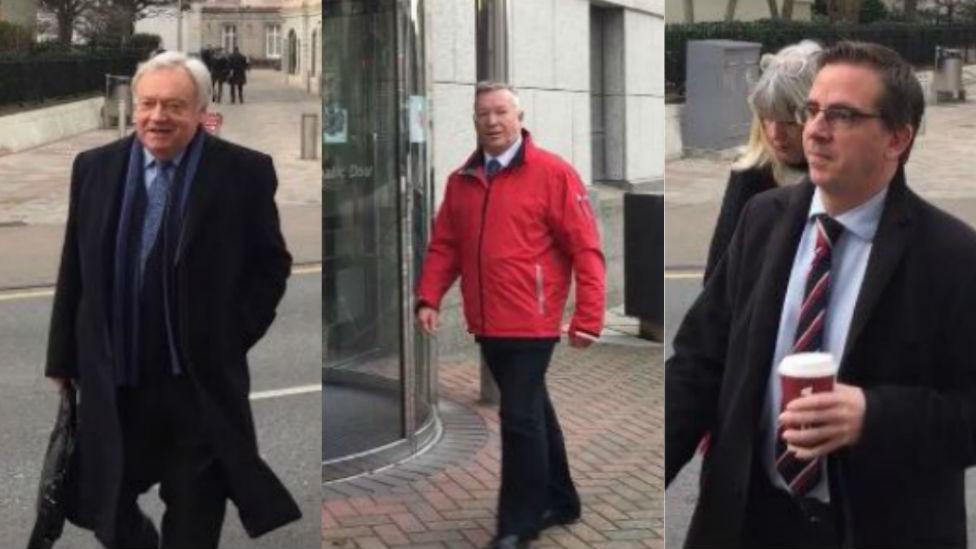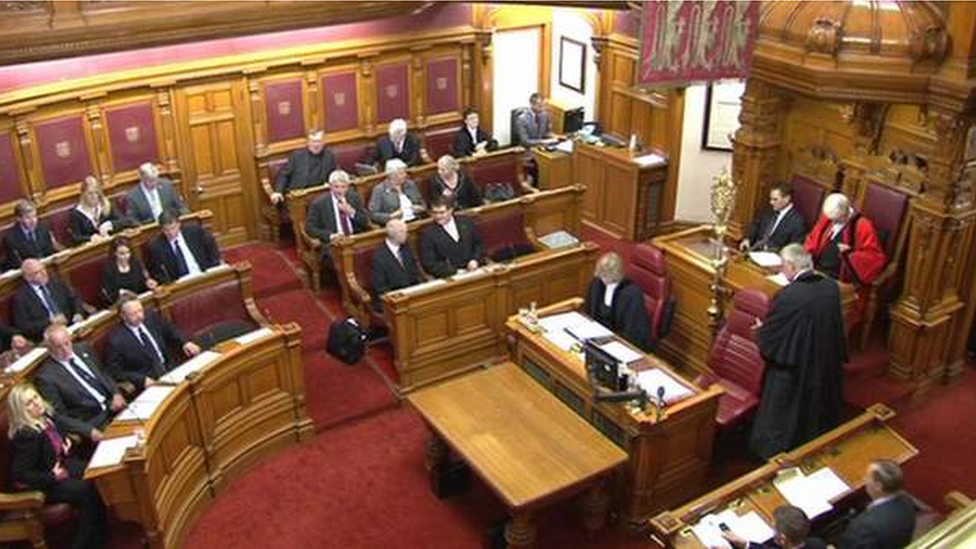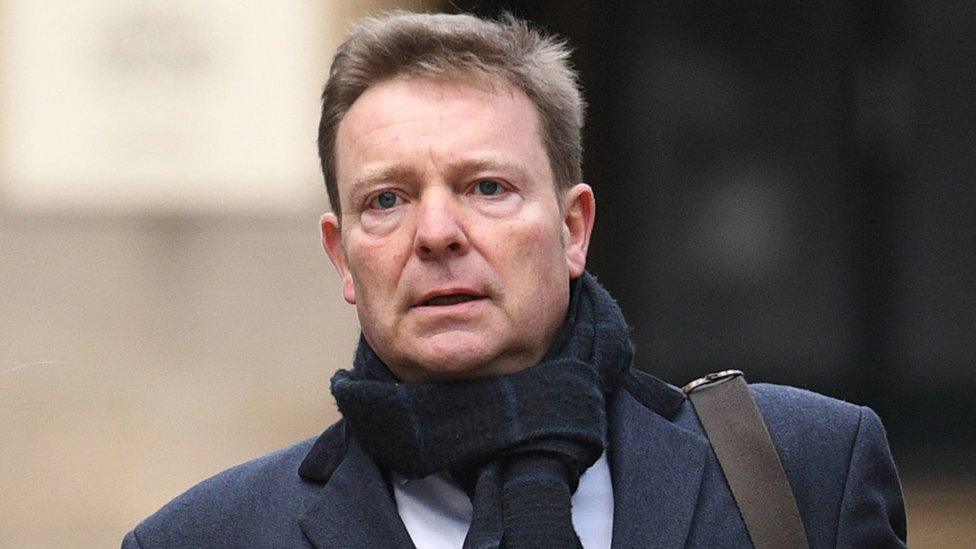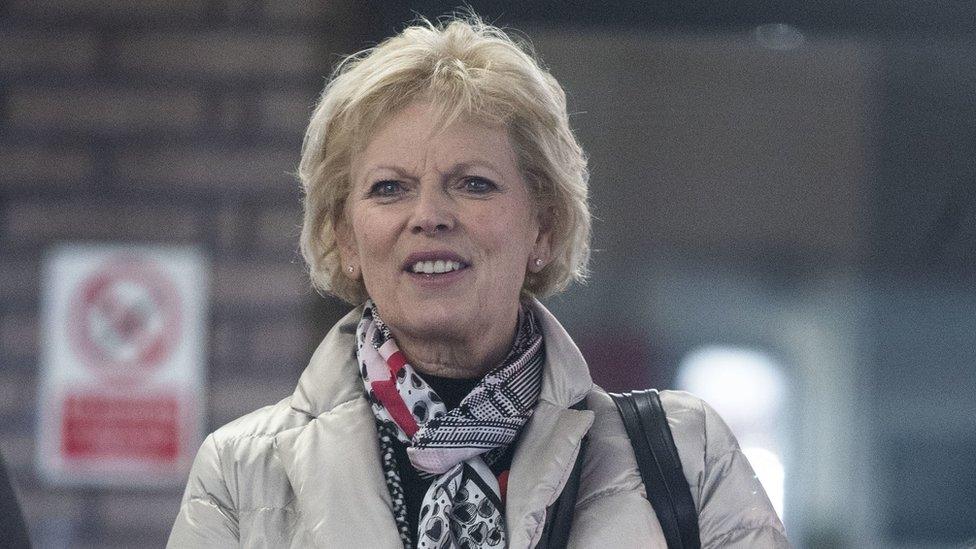Jersey election expenses: Half of candidates 'may have broken law'
- Published

Deputy Hugh Raymond, Bernard Manning and Deputy Scott Wickenden no longer face charges in relation to their expenses
Half of the candidates in Jersey's 2018 General Election may have broken expenses rules, the island's attorney general has said.
Forty-five of 90 candidates appear to have submitted their returns illegally, according to Robert MacRae QC.
His comments came as three candidates accused of failing to declare expenses had the charges against them dropped.
It was unfair to single them out when "so many" candidates appeared to have broken the law, Mr MacRae said.
Eighteen sitting politicians are among the 45 candidates from the May 2018 poll thought to have broken election rules.
Under the 2014 Public Elections Law, candidates are required to deliver a signed declaration of their expenses within 15 working days of the election.
More stories and news from Jersey
Twenty-eight candidates missed the 7 June deadline, while 17 candidates delivered declarations which "appeared" to break election law for other reasons, Mr MacRae said.
'No point in rules'
Frank Luce, a first-time candidate who stood unsuccessfully in 2018, said it was "surprising" so many candidates could have seemingly broken the law.
"It was very clear to me what the rules were on submitting expenses," Mr Luce said.
"There's no point in having rules if people don't stick to them."
Mr Luce said he would like to see elected candidates found to have broken the law fined and removed from their positions.
'Proceeding not appropriate'
Eighteen of Jersey's current 49 person parliament did not need to submit expenses in line with article six of the 2014 Public Elections Law, external, as they were elected unopposed.
Three candidates appeared in court last week on charges relating to breaking the election law, but it was announced earlier that the charges against them had been dropped.
"I have come to the clear conclusion that it would not be appropriate to proceed to trial in those cases," Mr MacRae QC said.
"It would not be right to single out these three individuals in circumstances where so many candidates appear to have failed to comply with the provisions".
- Published5 July 2018

- Published19 May 2018

- Published9 January 2019

- Published2 November 2018
